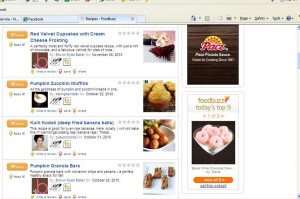I have recently been put in the position of assessing value. Not necessarily dollar value, but the value of intangible benefits like service, honesty, loyalty, fairness, empathy and commitment. Is it any wonder that these attributes are often referred to as a person’s or a company’s values?
After over fifty years of life, if there is one thing I have learned. There is great value in being true to your values. I have seen mentors and colleagues, competitors and rivals come and go, but the sole constant has been those people who have embraced their values and remained aligned with them, no matter the cost in dollars. I have seen many exchange personal values for the value of a dollar, the value of celebrity, the value of “winning,” often with unanticipated longer term costs. Today, I choose not to alter our core values for the sake of today’s fashion.
When I chose to leave the security of a traditional job and found a company, the calculation of intangible social values was part of the business planning process. Call it idealistic, but I wanted to run a company that valued people over profit. Not to say that profit is not essential. We define the three E’s of sustainability as Environment, social Equity and Economics. Without all three being in balance, nothing is being sustained. The economy is the value “ceiling” I am bumping my head up against today. I have found that the personal and social values of my company compete with our economic value. Competition in our industry is harsh; the price tag for what we do is high. The emotional quotient of what we provide is often off the charts for many of our customers. Buying decisions are sometimes based on little or no information about the person with whom you will be doing business. Competitors will use every trick in the book to win the business, and I must ask myself if I want to let them define the rules of engagement. Am I satisfied with what business comes my way based on our company’s core values? Is the business economically sustainable if I continue to rank our core values higher than the need to compete? Do our customers and potential customer share our core values and are they important enough to them to be part of their buying decision? Tough questions without easy answers, and yet they must be addressed.
It is much easier to speak of our core values. The value of service; in our industry, it is essential. Yet who defines good service? We are traditionalists. If a customer barely notices our staff’s role in their successful event, then we have provided exceptional service. Exceptional service does not mean saying “yes” to everything. When we receive a gratuity for our service, we know we have delivered on our promise. Some competitors take the decision out of the customers’ hands and add a “service charge” to their proposal. We believe that it is essential that this feedback mechanism remain in the hands of the customer, and not be assumed as rightful compensation. Yet for those customers who do not share this value, our position is confusing at best and an opportunity to bypass an additional cost at worst. In spite of this, we value our staff and pay a wage that takes this into consideration, sometimes adding a gratuity for their efforts from our own pockets.
The value of honesty is intrinsically tied to the value of service. We are often placed in a position where we have to tell a customer “no,” sometimes when the customer does not want to hear that response. We will not directly or indirectly withhold the truth from a customer or potential customer in order to influence their buying decision. We bring up potential issues with a customer in the beginning of the process, knowing that if we do not, they will inevitably surface at a later time, rendering us unable to fulfill the customers’ expectations. We also do not subscribe to the industry-wide practice of soliciting testimonials. This is not to say we do not maintain or value references and praise from our happy customers. But we do not “encourage” them to publicly proclaim our virtue. The quality of our work must stand on its own right. This also often puts us at a disadvantage when our potential customers look to public forums for feedback on our work.
Loyalty is a value we hold high. When we commit to working with a customer, that customer is assured that they receive 100% of our time and attention while we are working on their event. Despite the temptation to book multiple events in a single weekend or even a single day, we remain true to our commitment to the customer who booked with us first. My grandmother used to say, “…dance with who you brung (sic)…” and this holds true. Each event we do is an ongoing relationship with that customer, and it is extremely important for that customer to trust that we are there for them, even when the going gets rough. This is a value we have found to be important to many of our customers, and it has paid us back time and time again. Our desire to exceed our customers’ expectations means we cannot allow ourselves to be spread too thin. Our customers’ expectation is that we are committed to their event, and only their event, and it is important to us to honor that commitment.
Fairness and commitment are also tied to loyalty. Decisions in our company are based on the principle of considering all stakeholders; be they customers, staff, colleagues or our family members. Most importantly, these decisions are also based on what is fair and equitable in terms of our own quality of life. If we chose to, we could be booked with multiple events over all fifty-two weekends of the calendar year. However, this is not the reason I abandoned the corporate catering business and founded our company here on the Mendocino Coast. After over twenty-five years in the business world, I choose to value my own time and quality of life. Do my customers understand and embrace this? Likely they do not, nor do I expect them to do so. However, if I am stressed, exhausted, frantic or otherwise out of balance in my personal life, I cannot deliver exceptional service to my customers, and in the end the business suffers. As a sole proprietor, like it or not, I am my businesses’ most valuable asset. It would be irresponsible to treat a key employee in this way; so why would it be acceptable to treat myself this way?
Commitment to our staff and our community are also important to us. Our team is not just hourly contract workers, but a valued asset of our company. We mentor them, educate and train them, invest in their knowledge and expertise. We donate our time and expertise to our greater community in a variety of ways, including mentoring new colleagues rather than considering them to be future competitors. Fairness, honesty, dignity and professionalism come first.
Of course, after all this discourse, we must return to the question of economic value. How do we monetize our core values, and communicate that to our customers? We are a boutique service provider that prides ourselves on a level of personal service and quality that is rapidly disappearing in our industry. Size matters in pure economic terms, and our commitment to remaining “right sized” does impact our ability to compete. Our competitors, in most cases do not share our values. Our industry colleagues often do not understand or appreciate our values. We do believe that money comes and goes, but reputation and values endure.



